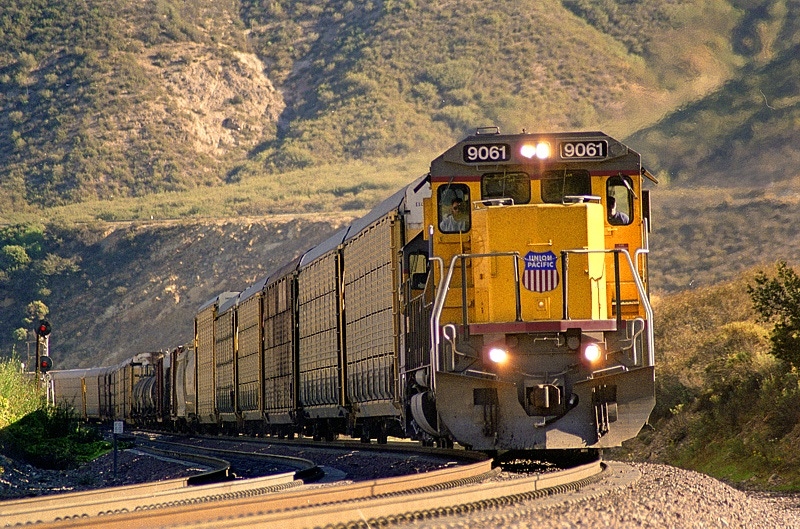STB supported in its efforts to offer updates to rail demurrage and practices.

Members of the Agricultural Transportation Working Group expressed support for the Surface Transportation Board (STB) undertaking efforts to modernize its oversight of freight rail rates, fix the process to challenge unreasonable freight rates and reform the current system of imposing excessively high rail rates.
Under the current system, a rate review case costs, on average, $5-10 million or more and takes at least three to five years to litigate. In a letter to the chairman of STB, members of the transportation coalition said they strongly support the board's initiating a rail rate reform proceeding as soon as possible.
“As noted in the task force report, the freight rail marketplace has changed significantly over the past 30 years, while the board’s processes for adjudicating excessive rail rates have not kept pace. Agricultural groups petitioned the board to adopt a new approach for captive ‘grain’ shippers to challenge unreasonable rail freight rates in 2014,” the letter noted.
The National Pork Producers Council (NPPC), one of the letter signees, and others said they believe the rail freight rates have “unreasonable timelines and costs and [are] evidence that the current system is broken.”
NPPC added, “Especially this year, where we may see some producers facing increase costs for grain as a result of this spring's unprecedented wet weather, NPPC strongly supports any efforts to reduce artificially inflated costs that producers would face to transport feed for livestock.”
STB held a public hearing in May, which the letter said was extremely informative and illuminating, noting, “In the aftermath of the hearing and receipt of supplemental comments from stakeholders, we commend the board for considering follow-up actions and believe development of further policies and guidance regarding the commercial fairness, commercial practicability and reciprocity of these rail practices is vital.”
In its 18-page supplemental statement submitted to STB on June 6, the National Grain & Feed Assn. (NGFA) said the agency’s rules should require that demurrage and accessorial tariffs imposed by carriers are reciprocal, providing the same treatment and penalties if railroads fail to perform in a similar manner and that the agency should require carriers’ tariffs to be revised to conform with such STB rules.
NGFA also urged the agency to retain oversight to monitor changes to railroads’ tariffs on demurrage and accessorial charges. The supplemental comments followed NGFA’s May 22 testimony at an STB public hearing as well as the filing of a 43-page statement to the agency on May 8 that was supported by the Corn Refiners Assn., National Oilseed Processors Assn., North America Freight Car Assn. and North American Millers’ Assn.
“There is no question that [STB’s] attention has brought increased transparency to these railroad practices and triggered a pent-up groundswell of concern among rail customers,” NGFA stated. “NGFA believes that the information and revelations emanating from the public hearing only strengthens and reinforces the need for [STB] to follow up by taking further action to facilitate the adoption of commercially fair and practicable, as well as reciprocal, demurrage and accessorial practices by the Class I railroads.”
NGFA’s supplemental comments presented seven “foundational elements” that could be included in STB-established policies and guidance governing demurrage and accessorial tariffs, including:
1. Free time for loading and unloading cars once actually placed at a facility;
2. Commercially fair and standardized railroad debit-and-credit policies that absolve rail customers from paying charges attributable to railroads’ actions;
3. Prohibiting demurrage and accessorial charges when railroads “bunch” cars at a shipper’s facility;
4. Prohibiting so-called “congestion charges” against rail customers when railroad yards have an excess of cars;
5. Applying private car storage charges reciprocally by charging the same railroad fees to the carrier when railroads cause private cars to dwell excessively while in railroad custody between empty release and loaded billing and constructive/actual placement at destination;
6. Requiring railroad tariffs to contain clearly stated and monetarily comparable penalties that apply against the carrier if it is the cause or the rail customer is not responsible for delays in loading or unloading cars, such as occurrences of spot-and-pull delays when a railroad fails to deliver cars ordered into a customer facility, and
7. Requiring rail carriers to validate and substantiate the accuracy of demurrage and accessorial charges before invoicing their customers.
About the Author(s)
You May Also Like



.png?width=300&auto=webp&quality=80&disable=upscale)

